The Family That Established a Synagogue in Their Living Room: "We Haven't Been Guests for Shabbat in 13 Years"
Meet the Steinberg family from Carmiel, who bring together a unique community of baalei teshuva and run a distinctive synagogue—inside their home. What does their Seder night look like?
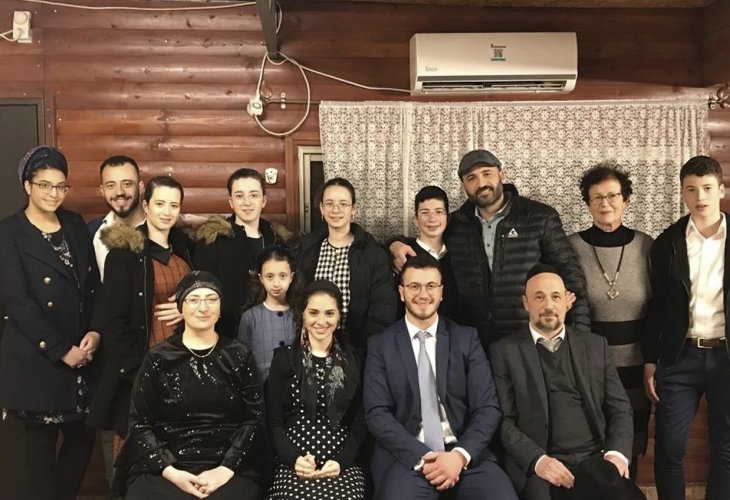
It was over a decade ago, on the eve of Passover, when a young girl who arrived in Israel from a secluded city in the Ural Mountains asked to join the Steinberg family in Carmiel for the Seder night. This girl, who hardly knew Judaism, maintained close ties, got married after a few years, became a mother, and today has quite a few sweet children. Her husband, who also visited the Steinbergs many years ago, has long since become a studious Torah scholar.
Other people who regularly joined the Steinberg family for the Seder, year after year, are now organizing their own Seders for others and bringing them closer; twins who had their brit milah there 15 years ago are setting out on their journey in the yeshiva world; and the family who came to have their Seder there almost directly from the airport has now settled in a Haredi community and become part of the local community.
You can't talk about 'Seder night' in Carmiel without mentioning the Steinberg family - the family that hosts dozens of people each year, most of whom are in processes of growing closer to the faith, despite their diverse backgrounds. They all sit around one table in the Steinbergs' home and feel completely at home.
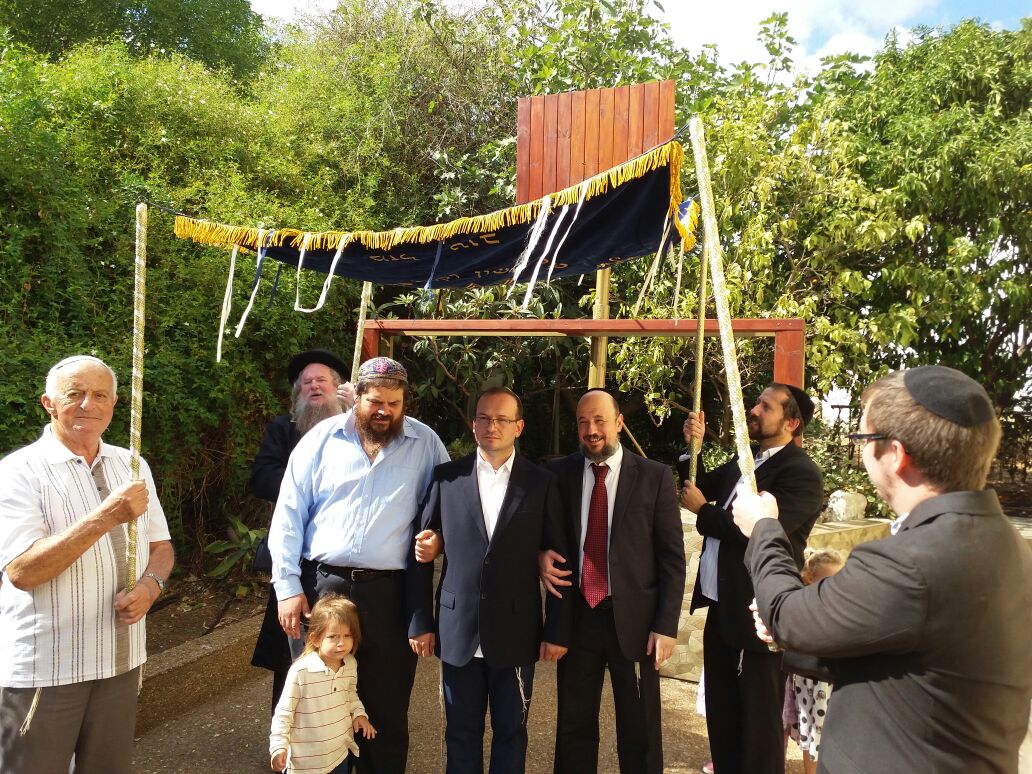
From Odessa to Israel
Her name is Miriam Steinberg, but she was once called by her foreign name 'Marina'. "I grew up in Odessa—a lively and colorful city", she recounts about her childhood, "There were dozens, if not hundreds, of thousands of Jews living there, but in my generation very few observed the Torah and mitzvot due to the Soviet regime's hostility towards Judaism".
As a child, Miriam mainly remembers her visits to her grandmother, who lived in a very small town, about a five-hour journey by a slow and unventilated train. "It was always a train crammed with sweaty people, stopping every ten minutes to drop off and pick up passengers from all the village stations along the way", Miriam describes. "I can say I received the foundation of my Judaism from my grandmother, even though her Judaism was not learned, it was very emotional, true, and sincere. I visited her at every possible opportunity, feeling that the truth was there".
For the past 16 years, Miriam has been living with her family in Carmiel, the quiet and northern city. "My children, *baruch Hashem*, experienced a different upbringing than mine", she says with satisfaction. "Most of them grew up here, in Carmiel, and they see around them a lot of Torah, kindness, friendship, and caring. In our home, we always try to emphasize only the good, and it's not hard to see it, because it's really everywhere".
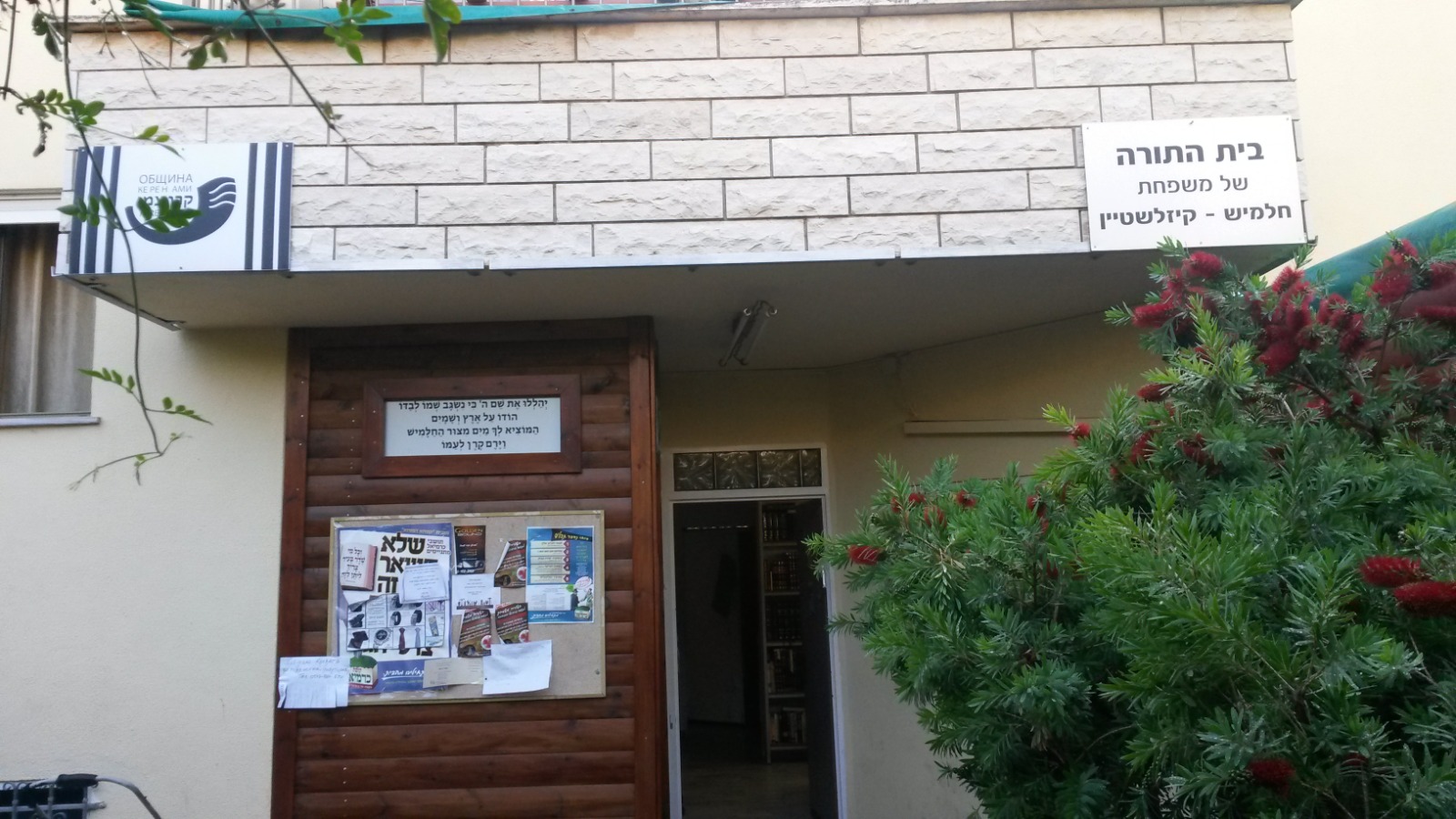
But it wasn't always like this, because before the Steinbergs arrived in Carmiel, they had gone through many stations. "Initially, my husband served in the army, and at that time we lived in Kiryat Arba, Jerusalem, and Shvut Rachel. When he went on to study in a kollel, we moved to Maale Amos, and then we came to the conclusion that the time had come to correct past mistakes and build the meaning of the future, so we went to Russia and returned to Maale Amos, made a brief stay in Telzstone for a year and a half, and then returned to Maale Amos, and finally, we headed north and settled in Carmiel".
That's quite a change. What led you north?
"It wasn't surprising or coincidental. Rabbi Eliezer Kugel, the head of the Shevut Ami yeshiva, with whom my husband studied in the mornings, suggested that we participate in building a community of Russian baalei teshuva in Carmiel, and it spoke to us very much. We decided to go for it, it seemed like an interesting challenge. That's why we named the community we established 'Cheirut Am', a fusion of the words 'Or' - referring to Ra'avad of Carmiel who initiated the 'Or' yeshiva and stands at its helm, and 'Shevut Ami', the yeshiva of Rabbi Kugel".
Where do your children fit in all this?
"When we went to Russia, we were a young couple with our firstborn son. We returned from there with a 'down payment' on a new daughter, but the pregnancy became complicated in the doctors' opinion, leading us to seek rabbinical advice. I must note that it was truly an experience to visit Rabbi Yitzchok Zilber zt"l—he supported the newcomers from Russia at that time. I knew him even before our wedding, but when we came to him to consult about the pregnancy, it was our first visit to his home. He was both a great leader and a simple person. It was very natural to love him and accept his words. Then, *baruch Hashem*, the daughter was born healthy and whole, and more children joined the family afterward. Today our children are grown, and our second son himself has moved to Carmiel to help with community outreach and studying Torah with the community members. It's exciting to think that we're starting to grow a second generation here".
A House as a Synagogue
Upon arriving in Carmiel, they already had five children, then came the younger ones. "*Baruch Hashem*, we have a large family", says Miriam, "but I don't just mention that to underline it. Rather, it is the reason why we came up with the idea of establishing a homey and family synagogue inside our living room. We're not a family of rebbes, and we are certainly far from giving others high spiritual attainments. The idea was different—we wanted to share our life experiences with people as much as possible, as long as modesty did not block it. We wanted to convey a simple message to the baalei teshuva community we knew and guided: 'If the Steinbergs can do it—so can you.'"
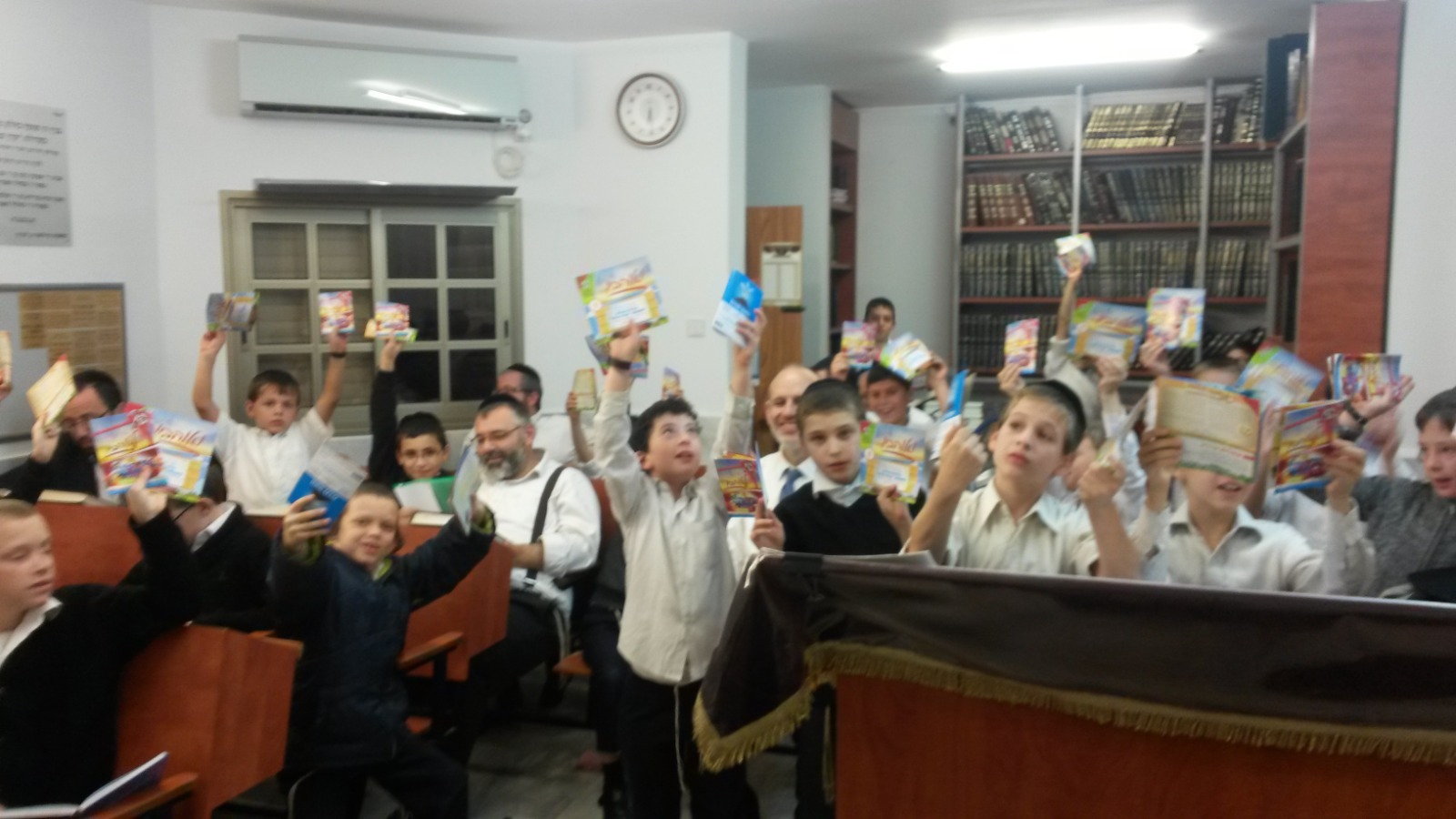
It can't be easy to turn your home into a synagogue, especially when it's full of little ones...
"Of course, it's not easy, even without talking about the management of the synagogue itself. It's enough to understand that once you have a synagogue that's open almost 24 hours a day, the house must be open all the time; there is no privacy, and at night it can be a bit unsettling. Because the house is a synagogue, we also can’t go away for Shabbatot, and basically, for the last 13 years, we haven't been guests anywhere; we've always been at home.
"But nothing frightened us. All the lives we've lived weren't easy, and precisely because of that we felt we wanted to inspire people who are at the beginning of their journey of returning to the faith, to show them that we also went through similar trials, and demonstrate where one can reach. There are also many topics that are hard to understand in theory and need to be encountered and seen up close. Like observing Shabbat, raising children, integrating into the Haredi society, and more. These are things that anyone coming closer to Judaism encounters long before any questions arise about the four sections of the Shulchan Aruch. Since we established the community and the synagogue in our home, we've been able to convey messages without necessarily articulating them out loud.
"Of course, we started small", she emphasizes, "but we have since been blessed with incredible amounts of *siyata d'Shmaya*. We managed to start from nothing and build a special synagogue, one that is accepted and loved, and not even Corona could stop us".
Who are those associated with your community? Immigrants from Russia?
"In the beginning, in complete innocence, we thought our mission would be limited only to Russians", Miriam recalls, "but with time and experience, we realized we had a lot to offer others, even those who are not officially part of the Russian immigrant community. Thanks to the new approach we adopted, we have merited that our synagogue Rabbi is Rabbi Binyamin Carmi—a Torah scholar, descended from a distinguished line of rabbis, unrelated to Russia. He is a beloved orator and highly sought after even in other communities in the city. The prayer service at our synagogue follows the Ashkenazi rite since that is my husband’s, but clearly, if someone adds from different rites, all congregants wait for him, with understanding and mutual respect.
"Corona brought many changes to synagogue operations and priorities. Currently, we hold two daily Shacharit and Mincha-Maariv services. There are also chavrutas around the clock. Before Corona, women also joined for prayer services, but our women's section was severely affected because of Corona, and now only a few come to pray".
What is your role in the synagogue?
"Before Corona, we regularly held women's classes, and that was one of the easiest and most pleasant roles to fulfill. I hope, with Hashem's help, that these classes will resume soon. Beyond that, what is required of me is mainly to host—to ensure there is always refreshments for our important guests, to watch over children who come to play in the yard and to check in on boys who come to learn in the synagogue right after school or cheder. Before Corona, we also organized weddings in our yard. It was so moving, usually, these were weddings of those who prayed with us and were part of our community. It is amazing to accompany people along the way and see them establish a Jewish home. Nothing can match this excitement".
Miriam notes that after years of working around the clock, she was essentially only inside the home (or synagogue); she felt exhausted. "For the last two years, I've made a change in my life and went out to work as an assistant in a kindergarten for special children. I work only in the mornings, so the synagogue doesn’t lose out, and I get a chance to refresh myself a bit".
Choosing to Live
The synagogue is currently undergoing a thorough cleaning in preparation for Passover. Miriam is sure it will be particularly moving to finally pray the holiday prayers in the synagogue, which they missed so much while it was closed. "But beyond the official use of the synagogue", she adds, "we try to convey the message to people that they can always come to talk to us, and we are happy to hear them. It's something important for everyone—women, children, and perhaps it's hard to believe, but men also need someone to listen to them. My husband and I speak Russian and Hebrew, but there are also English and Spanish speakers in our minyan, so it's a mix of languages. On the other hand, I've found more than once that the conversations I have with women striving to come closer sometimes spill into prayer times, which is problematic, so I made a commitment not to speak inside the synagogue. If anyone wants to talk to me, I explain we should do so in the yard or step into the private rooms. In the synagogue, we only pray."
How are you preparing for the Seder night?
"Seder night was usually our main task for the year, there were so many laws and concerns, all in generous measure. Naturally, many guests came to us—about 40 each year. The place was cramped, really too small to contain everyone. Repeatedly, there were those who wanted to come but were turned down, and this was very frustrating. On the other hand, we always understood there are those who need us more and those who need us less. Every year, without fail, there were families who had progressed, built good relations with other families, and chose to celebrate with their new friends. *Baruch Hashem*, there are those who have filled with confidence and feel they can manage the Seder on their own. To us, this is a great point of satisfaction because this is exactly what we aimed for from the beginning".
Miriam mentions that throughout the years, they genuinely delighted in hosting but always dreamed of the day they would conduct a Seder alone, just with the family. "So here, last year, Corona came and gave us the much-anticipated Seder night—just the family. It was good, but this year it was clear to us that, in no way, would we repeat that. We hurried to get vaccinated as soon as it was available, with a clear understanding that we are not willing to endanger people who come to visit and pray with us. Still, this year we decided to host only ten guests, in addition to family members. However, we take into account that at the last moment more guests may arrive, without prior notification. Thirteen years of experience managing a synagogue within our home has prepared us for the possibility of surprises."
It all sounds so ideal, but I'm sure there are also challenges in this activity...
"Indeed, there are challenges, and we do not ignore them", answers Miriam, "We strive to devote our lives to endeavors that seem important and not coincidental to us. We chose, as it were, to stick to the safe paths—family, friends, Torah. Even when there are failures—and there have been many—we do not lose hope, we don’t give up on ourselves, and we don’t give up on our aspirations".
The latest crisis they faced was just recently, about a month ago, when a righteous woman, a resident of the city, a mother of eight children, who also taught Miriam’s daughters, passed away. "It pained us greatly, because she was really a part of us. The whole community as well as people beyond the community’s boundaries came to support, but now, with the holiday upon us, let's not dwell on sad matters".
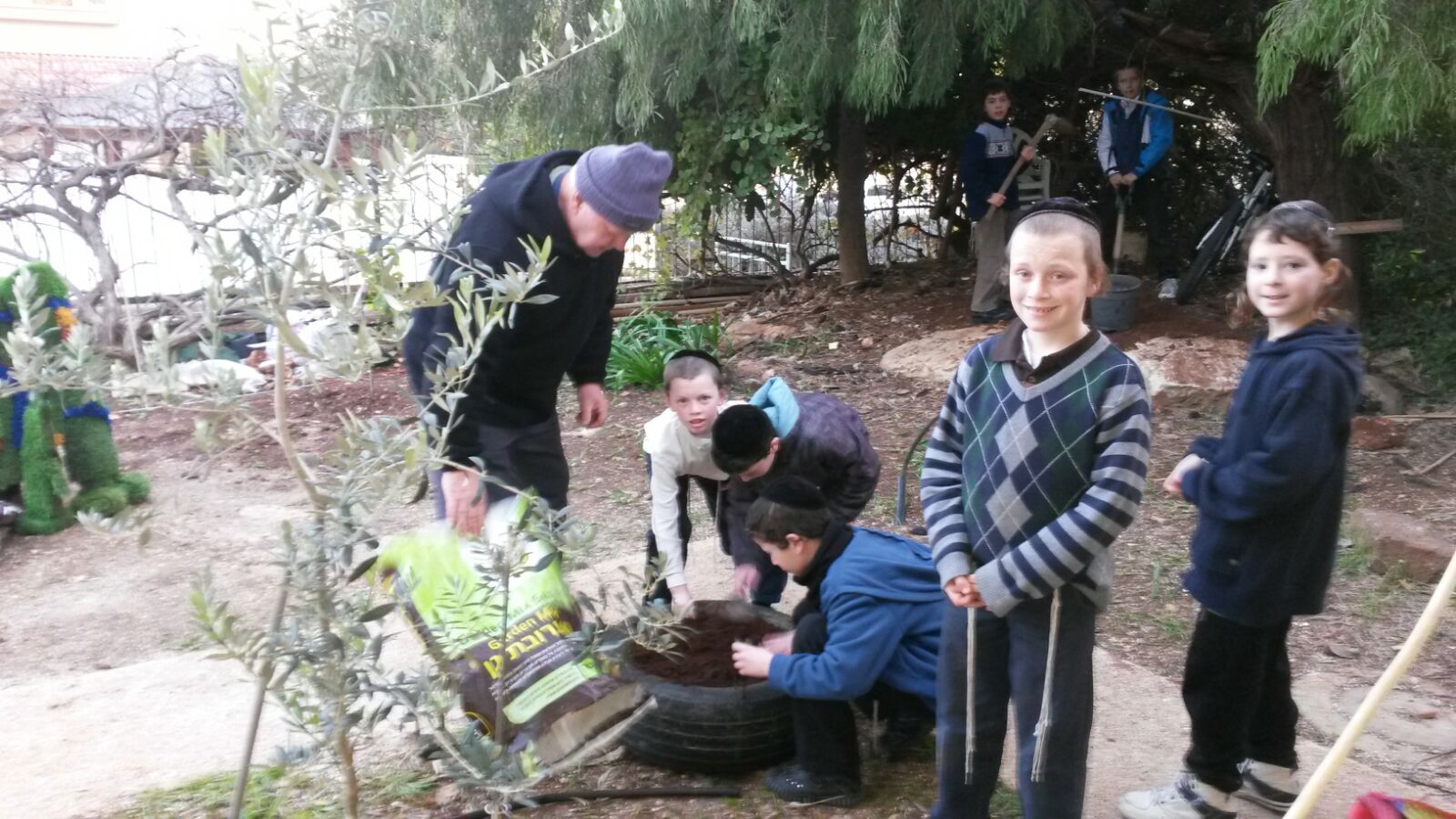
And how do the city's non-religious residents relate to your synagogue? Are they not worried about religious coercion?
"Religious coercion concerns?" Miriam wonders, "Not at all. My husband, as I mentioned, is a student of Rabbi Eliezer Kugel, the head of the Shevut Ami yeshiva. Rabbi Kugel is a humble and kind man, a true follower of Rabbi Aryeh Levin zt"l, who was famously loved and respected by everyone. We also strive to emulate him and follow in his ways. We love our neighbors very much, even those who don’t come to pray with us. We respect them and are not alienated; quite the opposite—we try to bring them closer to us. Why would they fear religious coercion, if it is clear that we are not threatening or forcing any opinion on others, but rather extending a hand for peace?"
She pauses for a moment and adds with a tone of satisfaction: "We are defeating Corona and with it every illness Hashem brought upon Egypt. We are choosing to live, choosing Passover, and choosing Hashem".

